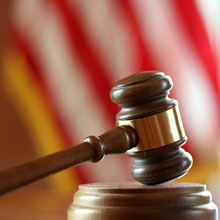AboutLawsuits.com
March 1, 2011
 A federal judge has refused to toss out a whistleblower lawsuit backed by the Department of Justice (DOJ), which accuses Johnson & Johnson of involvement in an illegal kickback scheme to push their antipsychotic drugs on elderly nursing home residents that did not need them.
A federal judge has refused to toss out a whistleblower lawsuit backed by the Department of Justice (DOJ), which accuses Johnson & Johnson of involvement in an illegal kickback scheme to push their antipsychotic drugs on elderly nursing home residents that did not need them.
Johnson & Johnson sought to have claims brought by the DOJ, a number of whistleblowers and states dismissed, saying that what the plaintiffs are calling illegal kickbacks were completely legal rebates. However, U.S. District Judge Richard Stearns found that plaintiffs had sufficient evidence to go forward with the complaint.
Judge Stearns did remove several plaintiffs from the case, including the states of Nevada, Texas and Illinois, but allowed Kentucky, Indiana and Virginia to stay part of the lawsuit. Whistleblower David Kammerer was also removed from the lawsuit.
The DOJ filed a civil False Claims Act compliant against J&J on January 15, 2010, saying that the company paid millions to Omnicare, Inc. as kickbacks for selling Risperdal to nursing home patients.
In 2009, Omnicare settled charges brought against it by the government for allegedly paying kickbacks to nursing homes to prescribe the drug. At that time, the Justice department investigators indicated that the illegal nursing home drug kickbacks were hidden as data fees, education fees and as payments to attend Omnicare meetings.
According to the DOJ complaint against Johnson & Johnson, the drug maker paid $50 million to Omnicare between 1999 and 2004 to get it to prescribe Risperdal to elderly patients with dementia, and then hid those kickbacks as payments for services that Omnicare never actually provided. Omnicare then enacted intervention programs such as the “Risperdal Initiative” to persuade physicians to prescribe the drug to elderly dementia patients.
Omnicare, the largest pharmaceutical supplier for nursing homes in the U.S., has pharmacists on staff who review patients’ records and then makes recommendations to the patients’ physicians. Those recommendations are followed about 80% of the time, the DOJ said.
The claims were originally made by Omnicare pharmacist Bernard Lisitza in 2003, and the DOJ chose to intervene on Lisitza’s behalf.
Whistleblowers who report a false claim against the government may be entitled to receive a portion of any money that the government recovers from the offenders under the qui tam provision of the False Claims Act. In return, the whistleblower must be the first to bring the case to the government’s attention, and must not publicize the claim until the DOJ decides to prosecute the claim.
Risperdal (risperidone) is manufactured by Janssen, a division of Ortho-McNeil-Janssen, which is a subsidiary of Johnson & Johnson. Risperdal is approved by FDA for the treatment of schizophrenia, bipolar disorder and autism, but it is commonly used among elderly with dementia and sometimes as a form of chemical restraint in nursing homes.
Risperdal is not approved for treatment of dementia, and patient advocates have been pushing nursing homes to reduce the use of the drug among elderly due to the health risk and a lack of actual health benefits. According to a recent report from the United Kingdom, side effects of Risperdal and other similar antipsychotics, like Seroquel, Zyprexa and Abilify, could be linked to as many as 1,800 deaths and 1,620 strokes per year in elderly patients with dementia.
http://www.aboutlawsuits.com/risperdal-omnicare-lawsuit-proceeds-16571/
To see more international drug regulatory warnings and studies on Risperdal and other antipsychotic drugs, visit CCHR’s Psychiatric Drug Side Effects Database here: https://www.cchrint.org/psychdrugdangers/drug_warnings.php


SHARE YOUR STORY/COMMENT